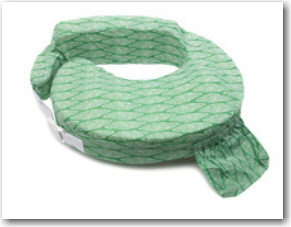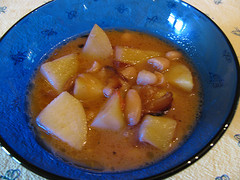Last week guest blogger Lisa Morguess from
Life As I Know It shared her personal story of overcoming several obstacles to develop a breastfeeding relationship with her son Finnian. This week she shares with us some of the tips and resources she found helpful.
----------------------------------------
Tips and Tricks~ First and foremost, if anyone tells you that breastfeeding your baby will not work because she has Down syndrome and you have your heart set on breastfeeding, walk away. Believe it can be done; plenty of moms have successfully nursed their babies with Down syndrome.
~ Find a good lactation consultant, preferably one who has some knowledge about Down syndrome and the unique challenges that can be associated.
~ Experiment with
different nursing positions. There is no one position that works for all moms or all babies. I had the most success when Finn was a newborn with the cradle hold, the cross-cradle hold, and the football hold. I found the football hold especially useful when using a SNS/LA, and the cross-cradle hold when using breast compression.
~
Breast compression is an effective way to increase your milk production and increase baby's intake. It works by manually compressing the breast as baby is nursing, slowly and repeatedly, thereby stimulating milk production and encouraging a baby who may have a weak suck to take in as much milk as possible.
Useful Contraptions and Accoutrements~ A good breastfeeding pillow is a must. A Boppy probably won't cut it, as the low muscle tone associated with Down syndrome necessitates a very firm foundation on which to support your baby. I highly recommend the
My Brest Friend pillow.

~ Some babies with Down syndrome do better with the sensory input of the more rigid shape of
nipple shields. Using the shields is usually only short-term, while a newborn is learning to efficiently latch and suck.

~ Sometimes it is necessary to use a
supplemental nursing system (SNS), also known as a lactation aid. If your baby is having an especially difficult time with latch and/or suck, and because of this she isn't gaining weight appropriately and your milk production is diminishing, an SNS might help. The SNS allows baby to receive supplemental milk while at the breast, and this in turn stimulates milk production. If you need to use an SNS,
try making your own instead of buying one. The ready-made systems are difficult to use and they're not cheap. A homemade one is inexpensive, easy to make, and easier to use.
A breast pump is a must for any breastfeeding mom, for those times when you are separated from your baby (for a variety of reasons), and need to keep your milk production “on schedule.” If your baby has any medical issues that require a separation from you, it will be extremely important to establish milk production as soon as possible by pumping your breasts at regular intervals (or if the separation is later, for instance due to heart surgery, it will be important to keep your milk production going). A breast pump is also extremely helpful in establishing and maintaining your milk production while a baby who has any feeding/latch/suck difficulties works out the kinks. Though I won't recommend a particular brand, I do encourage getting an electric double pump, as they are far more efficient and effective than manual breast pumps. You can rent a hospital grade pump from almost any hospital for a nominal cost, or you can buy one new from a variety of websites and baby stores, and you can even buy a used one at a discount on eBay or Craig's List. When you buy a used pump, you're basically buying the motor; you will need to buy your own new, sterile tubing, collection bottles, and breast shields.
Supplements to Increase Milk ProductionA well-balanced diet and ample fluid intake are necessary for sufficient mild production. If you find, that your milk production is lacking (which often happens when a baby has feeding difficulties),
herbal supplements can help, including fenugreek and blessed thistle taken together. These herbal supplements are available in capsule and tincture form from any health food or whole foods retailer.
If herbal remedies don't do the trick, there is
Domperidone (Motilium), a prescription drug whose intended use is treating certain gastrointestinal issues. It has an off-label use of increasing milk production in lactating women. (The FDA issued a warning at some point against using it for this purpose, and I'm not going to go into the ins and outs of that particular issue except to say that it has been used safely by a great many women who may not have been able to successfully nurse their babies otherwise. I used it for over two years and never suffered a single side effect.) If your doctor does not want prescribe it for you to increase milk production, it is available without a prescription from various international pharmacies online. Be assured that this is perfectly legal. The pharmacy I used to obtain Domperidone was inhousepharmacy.biz.
Some Wonderful ResourcesInternational Breastfeeding CentreBreastfeeding Inc.Breastfeeding OnlineKelly MomLa Leche League




 The easiest way to get it, and one of the safest, is through
The easiest way to get it, and one of the safest, is through 


